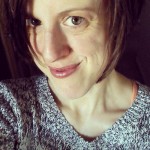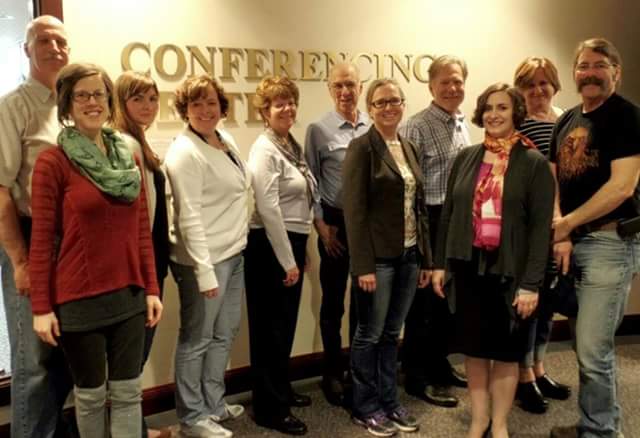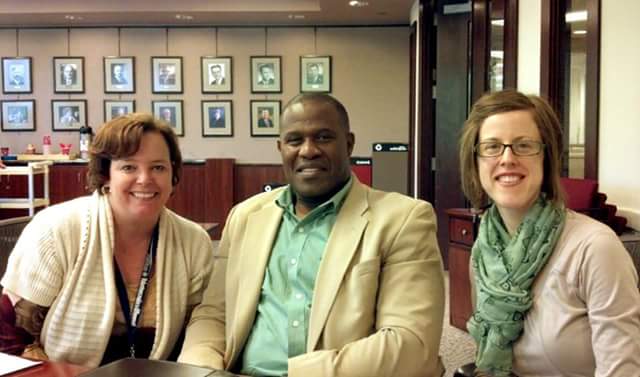Crisis Management Workshop: Renton Washington: April 29, 2015 – May 1, 2015
Dena Rosko
I supported community engagement for the crisis management workshop and certificate program from Saybrook University. My team members included Roderick Campbell and Eric Dooley-Feldman, with faculty members Nancy Southern, Gary Metcalf, and Ian Mitroff.
The workshop was distinctive because it focused on a systems perspective for preparing for, managing, and responding to crises. Often this effort can include coordinating multiple partners.
Various city staff attended the workshop along with a few Saybrook students, including myself. I appreciated this workshop because it integrated my personal and professional goals while contributing value to my city of residence. For my scholarship and practice, leadership involves making connections apparent, and aligning those connections with helping people to achieve their personal and professional goals while keeping their values. However, I have noticed that language falters at describing these connections from a holistic perspective. Perhaps a personal story will help.
Before spring semester, I was in the throes of a transfer so that I could continue my research and bring my vocational goals in line with themes that matter to me, such as Saybrook ‘s values for health and wellness of individuals, organizations, and society, and coordinating the effort with effectiveness and compassion. In early January, I attended an event supported by the city at Renton City Hall, and spoke with a couple of council members. I wondered how I could continue contributing value whether or not I delivered on my academic goals because I felt the uncertainty that can come with transition, especially if catalyzed by a crisis.
I quickly realized that yes, I would continue doing what I had been doing before, which is engaging my community with consulting for communication and story crafting for leaders and organizations, especially during transitions. “What’s your story?” in this case became what’s your crisis? How ironic that the lessons learned usually resonate the most because of a personal experience with change. For me, Saybrook has become one of my turning point stories.
Fast forward to the end of April, and I’m inside Renton City Hall interacting with various city partners, my favorite faculty members and students to address a practical concern that can scale and spread to influence people’s quality of life in a time of transition that calls for adaptive and generative work, which in this case involved managing crises.
At this workshop I developed relationships and rapport with people also passionate about their contribution and areas of concern, and the domain of their influence within the city. I’ve already enjoyed requests for more conversations over lunch, and how we can continue developing this network of professionals and academics working together to solve real problems that real people face, and yet within a value system.
Of course, these reflections that I’m sharing with you only show a glimpse of an effort that had been in process and development for two years. This workshop was a pilot test to learn how Saybrook can offer similar workshops.
I will reduce the workshop to takeaways: I learned that crises also involve a time of recovery that can create dissonance. The key, for me, is to reframe dissonance as a new start, and learn what I can do differently next time, or just move on to prepare for the next change – those that we least expect can snowball fast. So acknowledge the early warning signs, and ready your team. Implement your plan. Less worry more action. Reflect. Map another crises. Yet my leaning is one vignette of a whole.
Mostly, I marvelled at the overlap with my academic learning, research, and consulting practice and my city of residence. I appreciate the opportunity to develop relationships in my city, to progress my scholarship, and to contribute value. I also see many possibilities for higher education to communicate value to various communities by providing offerings that allow people to engage with academic thought in a way that benefits their quality of life.
To me, that’s what higher education is all about. Saybrook University is distinctive because it understands that the thrival of individuals, organizations, and society is an integrative, – holistic – endeavor, and supports students, faculty, and communities with opportunities to engage this effort. Thus, leadership may well face its own turning point as a discipline because a thriving society may benefit from a collectively engaged community effort towards holism. I feel excited for the future, which seems an ironic outcome of a crisis management workshop, except that it succeeded in the Saybrook way.
What does integral leadership for higher education engaging community mean for you?
Be free to learn more about the workshop at http://bit.ly/1divFbn
About the Author
Dena applies narrative to research cross-sector partnerships, organizational liminality and compassion, and collective performance. Dena develops organizations and consults leaders using narrative, intermedia, communication, and vocational coaching to succeed in their deliverables and organizational thriving, especially during transitions. Dena contributes at Saybrook University as a PhD-OS candidate and with the community engagement team, and resides in Renton, Wash. with her husband. Learn more at https://about.me/denarosko



